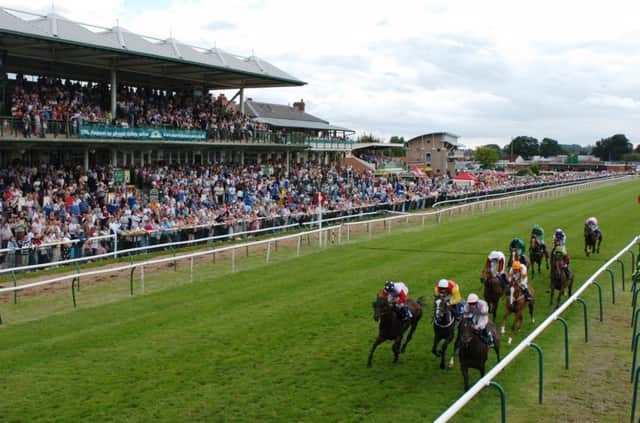Council responds to Warwick Racecourse FOI article


We reported last week that councillors expressed anger following Freedom of Information requests that showed council officers had met officials from the Jockey Club to discuss a potential partnership agreement. The requests had been put forward by Nigel Hamilton, who lives close to the racecourse and is a leading campaigner against the option of building a hotel on the site.
Speaking to the Courier this week, the district council’s chief executive Chris Elliott said that a statement included in our article that stated the meeting with the Jockey Club was made public “only because of a Freedom of Information request” is “factually incorrect” because there is a council document that was made publicly available that states that the meeting had taken place.
Advertisement
Hide AdAdvertisement
Hide AdHe said: “There is a huge implicit suggestion in this of a cover-up, but we have actually been open about the fact that there was a challenge.
“St Mary’s Lands are a public amenity, but there is also a racecourse there, which has been run by the Jockey Club for decades.
“The racecourse industry is changing. Our challenge is: how do we keep the character of the place? The character is also defined by the racecourse.”
Mr Elliott said the Jockey Club was trying to see how it can make the racecourse economically viable. He said: “A lot of people have disagreed about the hotel, which is fine. Nigel Hamilton disagrees - but he is not speaking without interest.
Advertisement
Hide AdAdvertisement
Hide Ad“A lot of people locally don’t realise the challenges being faced. There are racecourses closing all over the country. To the taxpayer, the council has a duty to protect that area and find out the best way of getting investment into the area.
“Keeping the racecourse going means we have to look at ideas. We set up a process. We did not agree with the process that the Jockey Club put to us. But the fact that they put it to us was made public.”
Mr Elliott said the meeting with the Jockey Club took place in the summer of 2012, following which he and council officers wrote a report which stated that they felt a different approach was the right way forward. This report was then published for both councillors on the executive to read before their meeting in November 2012 and for the public to see.
He added: “It is perfectly legitimate for Mr Hamilton to say that he does not agree with our decision, but it is disingenuous to say there is something underhand going on. We have been open and transparent.”